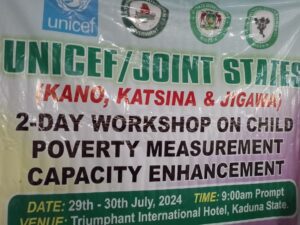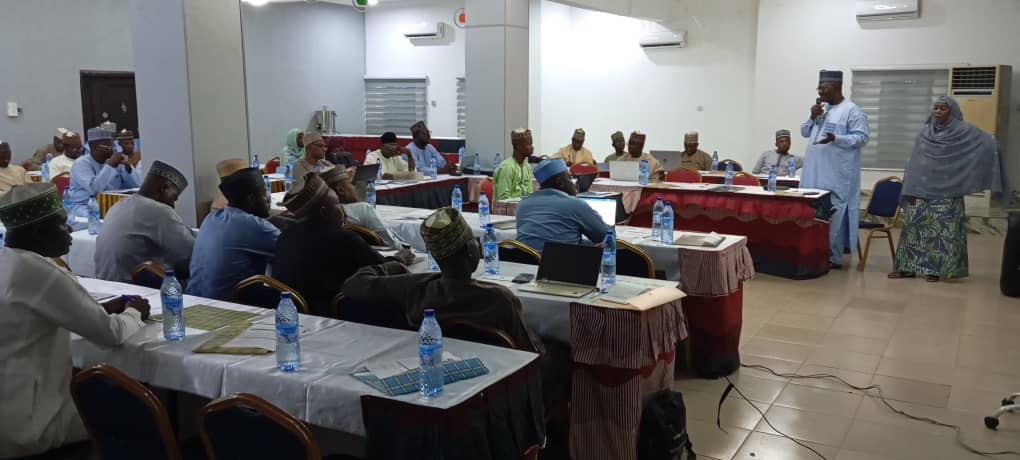Umar Idris Shuaibu – Kano
United Nations International Children’s Emergency Fund (UNICEF) says it has geared toward addressing poverty ravaging children’s well being in Nigeria.
The Social Policy Specialist UNICEF Kano Field Office, Fatimah Musa made the assertion in her presentation titled ‘Child Poverty and Vulnerability’, during a 2-Day Workshop on Child Poverty Measurement Capacity Enhancement of stakeholders from Kano, Jigawa and Katsina, held in Kano.
Musa emphasized the importance of addressing extreme poverty for children which needs to be piloted by all stakeholders across the states.
She said the poverty deprivation that children are now facing retards the growth and development of Nigerians society considering the UNICEF data.

“Poverty that we’re talking about is categorize into monetary poverty and multidimensional poverty.
Related:
UNICEF, CSOs Strategic to Social Protection Development
“The monetary poverty of children refers to the households living below income level of less than $1.99 a day, while the the multidimensional poverty has to do with the children facing deprivation in multiple dimensions like health, education, living standard among others.
“Our central concern is the children from 0 to 17 years because they’re those deprived in the 3 dimensions of well-being (water, sanitation, housing and access to information).
“The multidimensional child poverty analysis reveals that approximately 47.6% of children in Nigeria are multi-dimensionally poor by facing at least these deprivations nutrition, healthcare, education, water, sanitation, housing, and information in Nigeria.
“While data reveals Kano approximately 59.5% of children, Katsina 61.2% and Jigawa 89.4% are facing monetary poverty”, Fatimah Musa stated.
She called for more efforts by the government and concerned stakeholders on addressing the situation, adding that there is need for improvement with persistent multi-dimensional poverty being a crucial obstacle.
On his part, Planning and Monitoring Specialist, Ibrahim Ibrahim in a presentation on data quality highlights the importance of domesticating national monitoring and evaluation policy in order to achieve the set targets.


